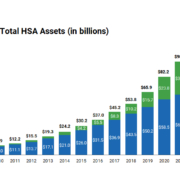What is the name of your health plan? Who’s your insurance carrier? If you had to look it up right now to check, you’re not alone; many people are not sure. If you don’t know the basics, you won’t be able to take full advantage of your benefits.
Health insurance is a tool—but only if you know how to use it. You don’t want to be like so many people out there who experience a health emergency and must deal with the stress of not understanding their health care coverage in a time of trauma.
Knowing your health plan matters
Surprise Bills
- You may get a procedure for which you need pre-authorization, and did not know until you received an unexpected bill. This happens more often than you can imagine.
- If you don’t know whether your provider is in-network or out-of-network, or how your plan covers care, you are more likely to pay out-of-pocket for services that should have been covered.
Miss Out on Preventive Services
- Many plans offer 100% coverage for preventive services (such as mammograms, colonoscopies, and annual physicals), virtual visits, and wellness programs. But you can’t use benefits you don’t know you have.
You Can’t Advocate for Yourself Without the Basics
- Here are just a few of the ways understanding your plan helps you:
- Ask the right questions and go through the proper channels for care; reach out for help by calling your insurance provider
- Spot billing errors
- Take advantage of telehealth, HSA options, or mental health coverage (to name a few)
What You Need to Know – Today
At the very least, every health insurance subscriber should know:
- Your carrier (the company providing your insurance, such as Anthem, Delta Dental, and VSP)
- Your plan type (Health Maintenance Organization – HMO, Preferred Provider Organization – PPO, Exclusive Provider Organization – EPO, or Health Savings Account – HSA)
- Whether your plan is individual, employer-sponsored, or part of an association
How to Find These Items Quickly
- Check your insurance ID card – it typically lists the plan name and carrier
- Log in to your carrier’s member portal (the website usually is on the ID card) – this is where you will find your plan documents, benefits, and provider network information
- Download your carrier’s app and create an account so that you have access to your ID card at all times, as well as to your health and benefit information and plan summary (Summary of Benefits and Coverage – SBC)
- Ask your HR or firm administrator if you’re part of an employer or association plan
Then, take a few minutes to review your SBC, as it outlines the services that are covered, excluded, and the pre-authorization requirements. It also helps you understand what your plan will cover and what you may need to pay out-of-pocket for. Knowing the basics gives you power as a healthcare consumer and enables you to become your own best advocate.
Please don’t wait for an emergency to try and understand your health plan; familiarizing yourself with it now is a smart way to save time, avoid stress, and ensure you get the most from your benefits.
*********
Created by CalCPA in 1959 as The Group Insurance Trust of the California Society of CPAs, CalCPA Health has remained steadfast in its mission to provide quality “boutique style” health care solutions—from medical, dental and vision to life and long-term disability—with unparalleled convenience and stability. It helps ensure that members can navigate the challenges of health care with confidence and peace of mind. CalCPA Health offers exclusive health and benefit plans to members, and there is a high level of trust knowing that these plans are operated by individuals who understand the unique needs of the profession – CalCPA members.



 The new California Law, SB 1375, was signed by Governor Brown on September 22, 2018 and will affect many small firm’s group health insurance. SB 1375 changes the Health Insurance Code to reclassify certain small employer groups as individuals. The affected firms will have to obtain individual health insurance in 2019, rather than the small employer group plans they currently have. Individual health insurance is typically more expensive with less provider network and benefit plan choices than small group plan offerings.
The new California Law, SB 1375, was signed by Governor Brown on September 22, 2018 and will affect many small firm’s group health insurance. SB 1375 changes the Health Insurance Code to reclassify certain small employer groups as individuals. The affected firms will have to obtain individual health insurance in 2019, rather than the small employer group plans they currently have. Individual health insurance is typically more expensive with less provider network and benefit plan choices than small group plan offerings.